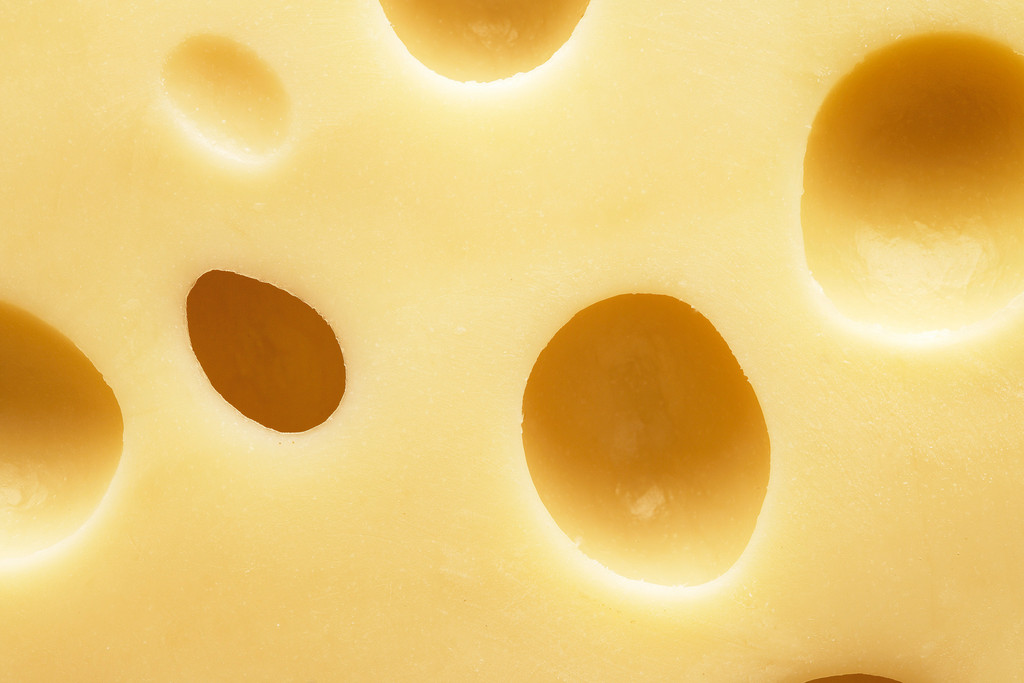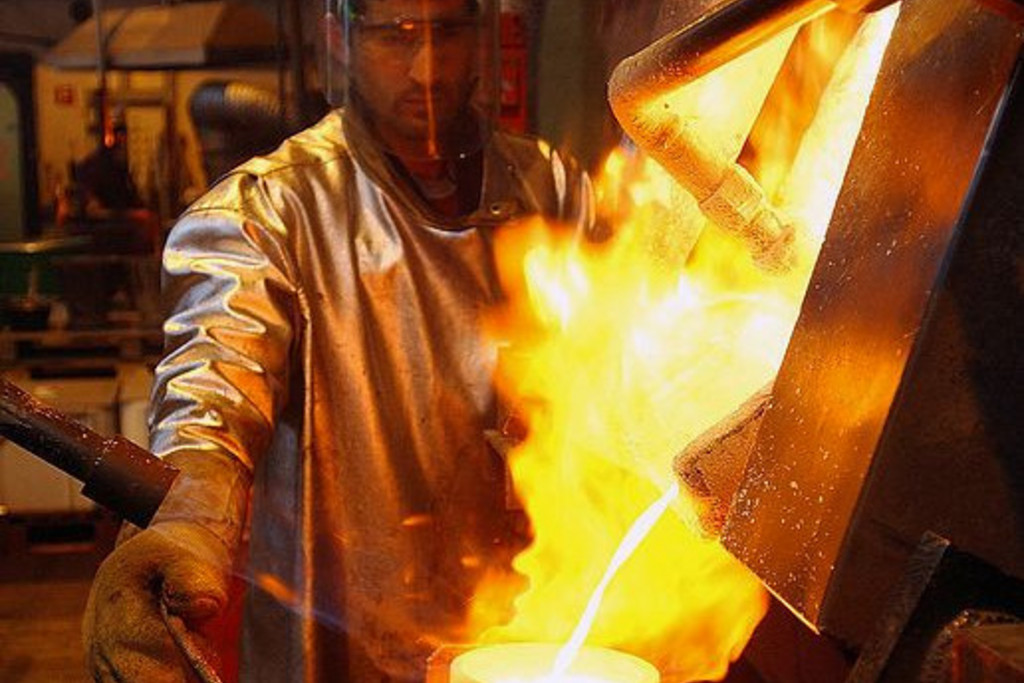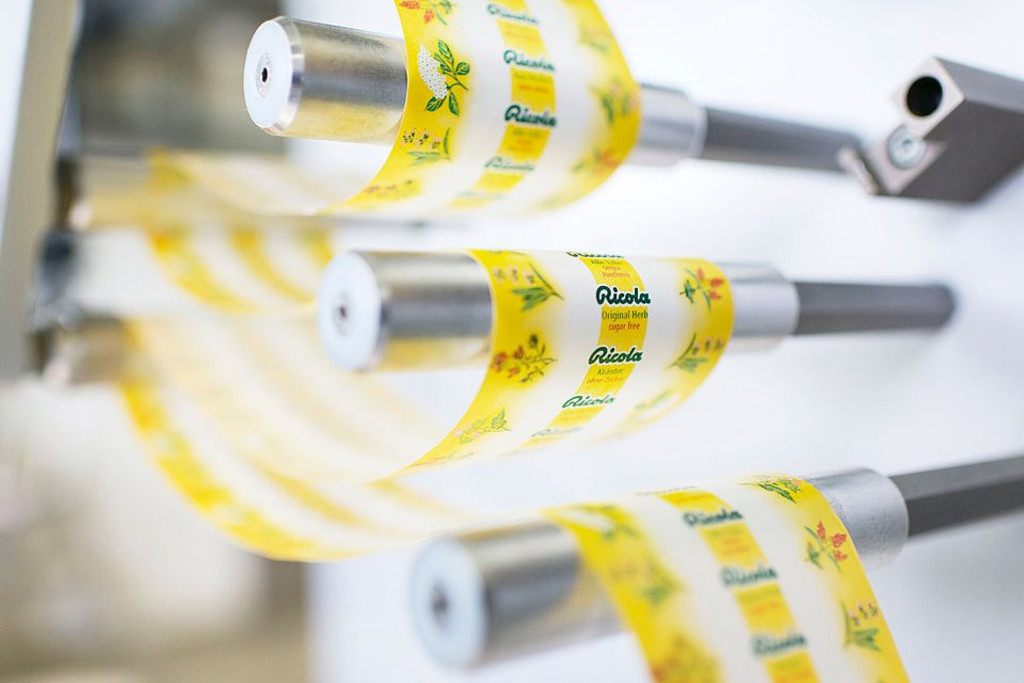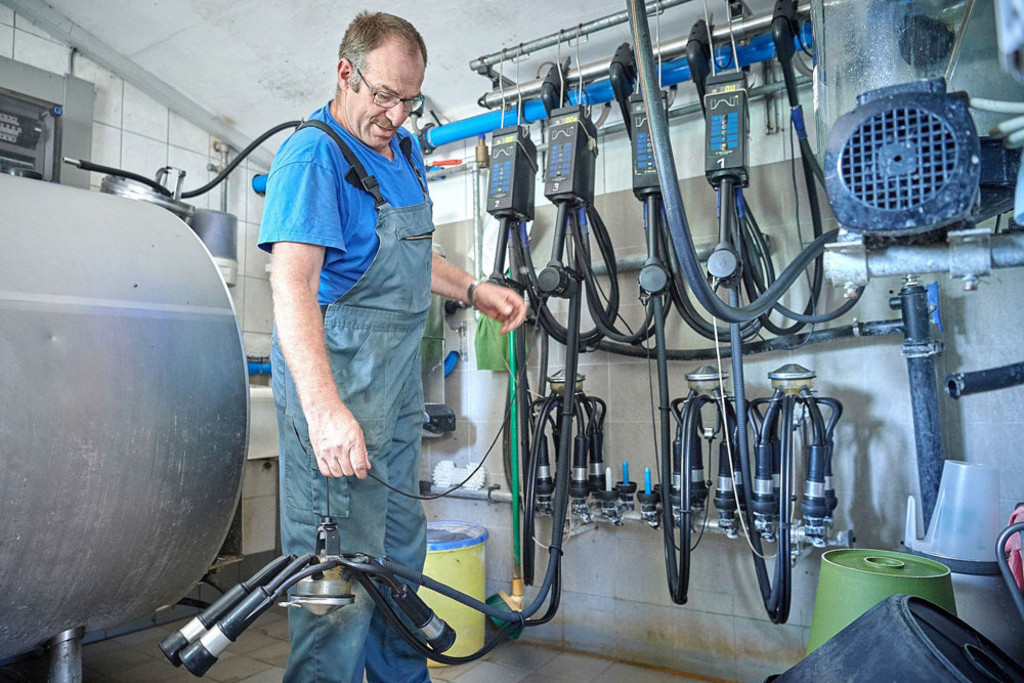The pork in the mini cordon bleu comes from Switzerland, as do the cheese and ham used in it. Until now the convenience food producer Bofrost has labelled this product with a Swiss flag in its catalogue. However, that now has to stop owing to the coating. The breadcrumbs do not come from Switzerland and under the new Swissness regulations the product may no longer be advertised as Swiss. The new law stipulates that at least 80 % of the weight of ingredients in food products must come from Switzerland in order for it to be marketed as Swiss. The coating accounts for 25 % of the weight of Bofrost’s mini cordon bleu.
Many Swiss companies in the food industry have been forced to change their recipes, packaging or both owing to the new legislation, including the muesli manufacturer Bio-Familia. The company would have needed to remove the Swiss cross from 110 of 130 different product packaging types owing to the new provisions. By modifying 50 recipes, it was able to leave the flag symbol on the packaging. Niklaus Iten of Bio-Familia reveals that intensive discussions took place within the company about whether to make the changes or to simply relinquish the Swiss cross in future. In the end the company decided to retain the symbol, fearing a fall in demand from abroad otherwise. “Export customers clearly indicated to us that they wouldn’t buy without the Swiss cross,” remarks Iten.
Juices or French fries
The new law has also forced the food producer Hero to take action. The Swiss logo has been removed from 70 products, including pasta sold under the Napoli brand. While it is made in Switzerland, there are not sufficient supplies of durum wheat semolina here and it is therefore imported. Further examples include Nestlé removing the Swiss cross from 80 products, including the Thomy and Leisi brands. The Swiss cross has had to be taken off Ramseier juices containing exotic fruit. The logo has been removed from the French fries in Frigemo’s convenience food range. Guarantees could not be provided that they consisted of 80 % Swiss potatoes. However, the herbal sweets manufacturer Ricola, which exploits its Swiss origin very heavily in marketing, is only talking about making selective modifications to recipes.
Many companies are critical of the new legislation. Hochdorf, the milk processing company, believes it focuses too one-sidedly on the origin of raw materials and too little on production in Switzerland. Daniel Bloch, CEO of Camille Bloch, which makes Ragusa chocolate, complains: “The cumbersome demands on the origin of raw materials create new obstacles for companies manufacturing in Switzerland.”
Consumer protection representative Sarah Stalder has little sympathy with such views: “Complaining now just shows that food producers are keen to cash in on the Swissness bonus but want to leave everything as it was,” remarks the head of the Consumer Protection Foundation (SKS). The industry has had enough time to adapt to the changes or to apply for exemptions. The Federal Office for Agriculture also rejects the claims: “The consequences of the Swissness law are being overdramatised,” says Vice-Director Dominique Kohli. He is unaware of any company forced to make job cuts as a result so far.
Matthias Pfander is business editor at the “Tages-Anzeiger”
The new Swissness regulations
When can a product be marketed as Swiss?
Natural products: For minerals (such as salt), plants, fruit, game and fish, the place of extraction, harvest or hunting is the decisive factor. In the case of meat from the rearing of livestock, the animals must have spent most of their lives in Switzerland. With animal products, such as eggs, milk and honey, the animals must be kept in Switzerland.
Food products: At least 80 % of the weight must be made up of raw materials from Switzerland and the main processing stages must take place here. If an ingredient is not available in Switzerland – such as cacao or pineapple – or not to the required quality standard or in sufficient quantity, it is excluded or only partially taken into account. Low quantities of additives, such as salt, herbs and yeast, are not included. Federal government has also provisionally approved 58 exemptions, including candy sugar and protein powder.
Industrial products: 60 % of manufacturing costs (such as with watches) must be incurred in Switzerland and the main manufacturing stages must take place here. The costs of research and development, quality assurance and certification are also taken into account.
Services: With regard to services, the provider must have its administrative headquarters in Switzerland and also carry out its main activities here. (map)
Photo: Keystone

![[Translate to en:]](/fileadmin/_processed_/9/e/csm_maggi-flasche-geneigt_d99b6f4bac.jpg)









Comments
Comments :
The Swiss label stands for quality worldwide, even at a subconscious level among consumers who know nothing about Switzerland. Since companies abuse the brand and dilute it, it is necessary to protect and strengthen it, and the only way to achieve that is through enforcing standards.
It is important to remember that this act not only protects Swiss industries, it also protects consumers by improving transparency with regards to the origin and practices used in preparing the products and services we buy.
Companies that can no longer use the Swiss label due to not meeting the standards of the Swissness Act, are not discriminated against. They can still protect their brands with trademarks and customer satisfaction.
The Swiss label stands for quality worldwide, even at a subconscious level among consumers who know nothing about Switzerland. Since companies abuse the brand and dilute it, it is necessary to protect and strengthen it, and the only way to achieve that is through enforcing standards.
It is important to remember that this act not only protects Swiss industries, it also protects consumers by improving transparency with regards to the origin and practices used in preparing the products and services we buy.
Companies that can no longer use the Swiss label due to not meeting the standards of the Swissness Act, are not discriminated against. They can still protect their brands with trademarks and customer satisfaction.
I agree that products with any Swiss designation need to have high standards of quality control but not to the detriment of Swiss manufacturers and the economy.
Die USA und damit auch Trump werden sich diese Fragen wohl nie stellen, weil schon allein diese nie auf so etwas kommen würden. Mehr noch, die Qualität ihrer Produkte können Sie auch mit wer weiss was für einen Verpackungs-Aufdruck verbessern.
Es kommt mir ähnlich vor wie hier in Costa Rica die Geschwindigkeits-Vorschriften auf der Autobahn. Alle fahren so schnell sie wollen, denn erwischt zu werden ist so selten wie ein Los in der Lotterie zu gewinnen. Ich nehme an, die Polizei hier benützt vielleicht einmal pro Woche eine der wenigen Radar-Pistolen die sie besitzen.
Als Schweizer hier im Ausland, fällt uns eventuell auf, dass der Gegenstand nicht in der Schweiz hergestellt wurde, aber ein Nichtschweizer, weiss zum Teil nicht einmal was das Schweizerkreuz bedeutet. Wenn sie im Süden von den USA Benzin tanken und der Schwarze, welche das Benzin einfüllt fragt, woher du kommst, und du sagst "from Switzerland", wird er vermutlich antworten: "Oh, that's in New Mexicio, right". Vermutlich kann er gar nicht lesen.
Also viel Glück mit dem neuen Gestetz. Hier in Costa Rica, wenn jemand etwas dummes macht, sagt man: "Para tonto no hay que estudiar" oder auf Deutsch: Um dumm zu sein muss man nicht studieren. Das Gesetz hat sicher eine gute Absicht, und wie man sagt, zählt ja diese. Dass es nicht kontrollierbar ist, ist jedoch dumm.
Komischerweise lässt man dies zu weil man wohl angst hat dem "Grossen Bruder" auf den Nerf zu treten!!
Aber als Schweizer der schon 32 Jahre in den USA lebt und 49 Jahre für eine "echte"Schweizer Firma gearbeitet hat ist es oft mühsam zu sehen mit was für welchen S,,,,,produkten unser Schweizerkreuz und der Name SWISS in Verbindung gebracht wird.
Wenn die Schweizer Flagge international geschützt ist, dann sollte man gegen die kommerziellen Sünder vorgehen können. Dazu brauchen wir eine zentrale Meldestelle, wo man Bilder einschicken kann.
Es werden Berichte erstellt , kontrolliert , Sitzungen abgehalten und neuen Weisungen vom Staat verfolgt .Die anfallenden Mehrkosten der produzierenden Firmen verteilen sich dann elegant und fast unmerklich auf den Verbraucher.
Mein Unmut kommt nicht von ungefähr , ich lernte in einer Gross Schweizer Firma mit 1000 Bürolisten / 2000 Arbeiter welche erwartungsgemäss bald unter gegangen ist. Vor meiner Pensionierung in einem Schweizer Staats Betrieb welcher in den 80er Jahren mit 20 Angestellten perfekt funktionierte arbeiten unterdessen mit dem gleichen Auftrag Volumen gegen 50 Angestellte.
( Umständliche Anforderungen und Hürden )wie in Ihrem Bericht oben zitiert !